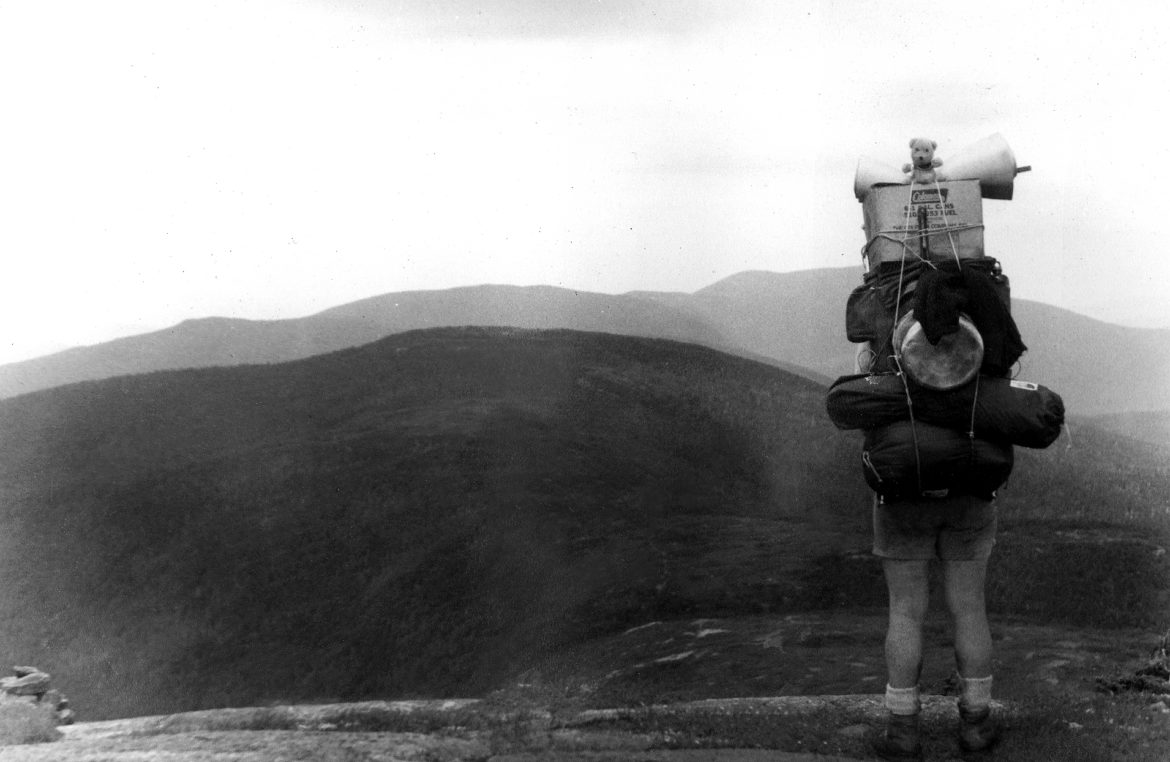The View From Rattlesnake Ridge
Ruminations from an Unabashed Optimist, an Environmental Patriot and a Radical Centrist
By Wayne D. King
Nestled into the woods in several dozen different places, mostly along lakefronts, in the shadow of Rattlesnake Ridge, are summer camps of all kinds.
I’m not talking about small summer residences of individual folks, though there are plenty of them to be sure. I’m talking about places where young boys and girls get what, for most of them, is their first experience living in a community separate from those of their parents.

Former state Sen. Wayne King of Rumney writes View From Rattlesnake Ridge.
A hundred years ago there were many more. Their names now consigned to books of Native American history and faded shirts and banners in the drawers of old men and women. Of the survivors, some of them are day camps, others have managed to avoid the developers dozers by moving to shortened sessions at higher per week prices, others have been taken over by foundations or nonprofits.
Many maintain a tenuous foothold in a era of computer camps, sports camps, summer schools and parents who too often delude themselves into believing that they will make time for their kids.
I was a camper at camp Mowglis on Newfound Lake by a complete accident that changed my life. In early June of my very first summer there William B. Hart wandered into my father’s barber shop on Main Street in Plymouth for a trim. Hart, an FBI agent who had just resigned to run Mowglis for the newly established Holt-Elwell Memorial Foundation, was in a quandary. The Foundation that hired him had just purchased the camp on behalf of its alumni who were determined to avoid the development of over 100 acres on the north end of Newfound Lake and camp was scheduled to open in just a few days.
That morning he had received a call from his camp nurse to tell him that she had been in an auto accident and would be unable to work for the summer. In those days there weren’t a lot of regulations governing camps but the state required every camp to have a licensed nurse on staff.
Like a thousand men and women who unload their troubles on their barber or hairdresser every day, Bill Hart conveyed his dilemma to my father who saw the chance to give his son an experience he could never have afforded on a barber’s salary and he jumped at the opportunity, offering my mother, a Registered Nurse, as a part of a package deal that included me and my two little sisters – though Mowglis was a boys camp.
So serendipity brought me to Mowglis and an ongoing scholarship kept me there for ten years until I was old enough to be employed there.
Many of my life lessons were learned from my parents but at Mowglis I learned to believe in myself, to stretch the boundaries of my imagination, to reach out to the fellow who was struggling and help him up. Of all the touchstones in my life Mowglis remains the most important to me.
Camp introduced me to boys of all colors, all religions, from every socio-economic level and to staff members who were role models that still continue to provide inspiration to me.
One of them was Myron Braley of Hebron. Myron was an old Yankee who talked New Hampsha’ as if he was straight out of central casting, though I’m still not sure if he was putting it on half the time. He had a great sense of humor and often played us. Myron was the “maintenance man” at Mowglis.
By social tradition he should have been considered low man on the totem, barely noticed, but he was revered by campers and staff both. I think it was, in part, the respect shown for him by Bill Hart. Leadership, real leadership, grants dignity to every member of a team and engenders a loyalty that is timeless and powerful.
Myron was there every summer as I grew up and my respect and admiration for him only deepened as I grew older.
One day, after I was an adult, I stopped by Myron’s shop where he was sharpening an ax on a giant grindstone. He carried on a conversation with me as his foot moved forward and back, running that grindstone, as if by instinct, as the sparks leapt from the ax head.
It was a beautiful cloudless summer day and I was filled with the vigor and enthusiasm of youth. I was about to lead a group of the oldest boys into the Presidential Mountain Range. Myron walked me to the door and he paused and looked up into the sky. Then he stopped me and handed me a lightweight tarp. He pointed to the slightest whisper of clouds gathering in the western sky. I wouldn’t have noticed them had he not pointed them out.
“Take this,” he said. “There’s a storm coming.”
Late that day, as I set up the tarp in a copse of trees above timberline on the side of Mount Washington, as a thunderstorm from hell brought rain and hail down around us, I silently thanked Myron for helping me protect those boys. I never ventured into the Presidentials again without a way to shelter us from the storm.
Today, though he is long passed, I think of Myron often as I watch the nightly news.
There’s a storm coming . . .
I pray that we are ready for it.
About Wayne D. King: Wayne King is an author, artist, activist and recovering politician. A three term State Senator, he was the 1994 Democratic nominee for Governor and most recently the CEO of MOP Environmental Solutions Inc., a public company in the environmental cleanup space. His art is exhibited nationally in galleries and he has published three books of his images. His most recent novel “Sacred Trust” a vicarious, high voltage adventure to stop a private powerline has been published on Amazon.com. He lives in Rumney at the base of Rattlesnake Ridge and proudly flies both the American and Iroquois Flags. His website is: http://bit.ly/WayneDKing





